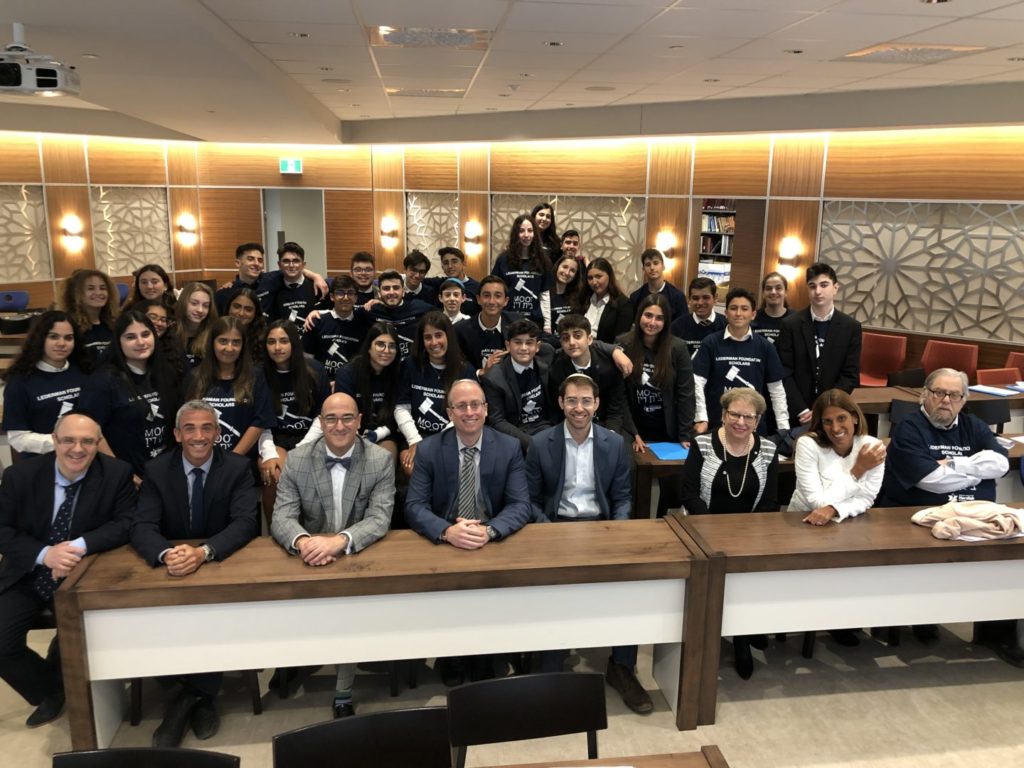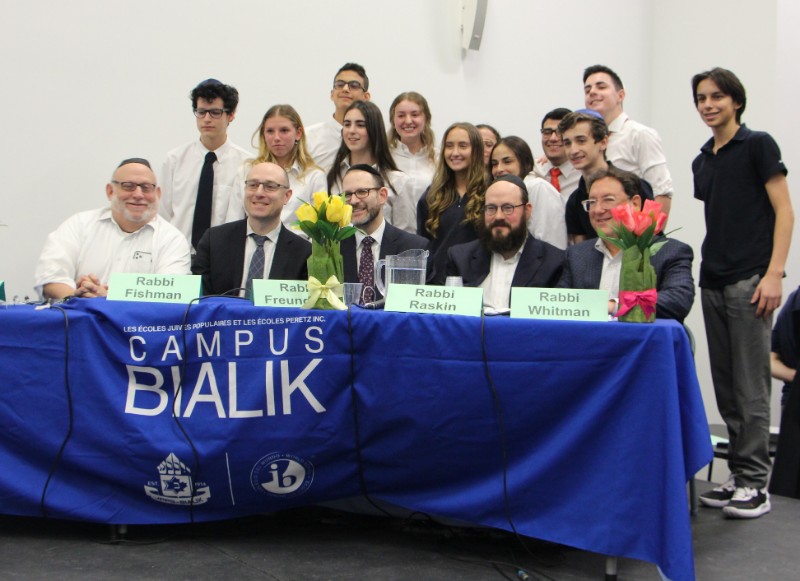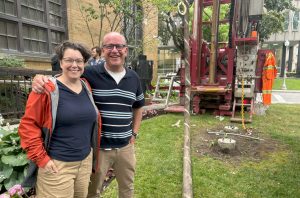An international Moot Beit Din competition eagerly anticipated by two Montreal Jewish high schools, that was to have taken place in New Jersey this month, will be conducted by video conference as a precaution against COVID-19.
Bialik High School and Herzliah High School were advised by the organizer, the New York-based Hadar Institute, that the Moot Beit Din (a mock court of Jewish law) will go ahead on March 22.
The event, scheduled to take place in a hotel, was to have been preceded by a Shabbaton starting March 19.
Both Montreal schools excelled last year at the event, and the change of format has not dampened their enthusiasm. The 29 scheduled teams this year come from throughout the United States, Canada, Mexico, and Israel.
They will argue for and against the solution to a contemporary ethical dilemma using only halakhah, before a panel of judges.
Shimshon Hamerman, who is coaching Bialik, said some teams that could not make it to the site in the past have participated virtually and he is confident this format will work fine for the entire completion.
Both Bialik and Herzliah have spent months preparing.
“The Moot Beit Din programs reflect Hadar’s mission of applying Torah meaningfully to the world around us,” said Rabbi Avi Killip, Hadar’s vice-president of strategy and programs. “They offer students the opportunity to engage deeply with our tradition through halakhic texts and beyond, mining them for wisdom that is relevant and learning the skills to incorporate our tradition’s texts into their lives today.”
Participants submit a written argument in advance and make oral arguments at the live competition. They then present their ruling to a diverse panel of judges, who make a halakhic ruling.

This is the first year Hadar is responsible for the Moot Beit Din program, launched in 2001 and previously run by Prizmah: Center for Jewish Day Schools, also New York-based.
Hadar describes itself as “an educational institution that seeks to empower a generation of Jews to create and sustain vibrant, practicing, egalitarian communities of Torah learning, prayer and service.”
Bialik and Herzliah have three teams each in contention.
Each held in-house Moot Beit Dins that were judged by panels of rabbis and, in Herzliah’s case, lawyers too. At Herzliah, there were eight groups of students in Grades 9, 10 and 11 vying for a spot on the teams going to the international event.
The case the students are considering this year concerns a hypothetical high school student group active in the issue of climate change. The group has grown over the past three years and would like to expand further, but lacks the money.
Funding is needed to rent space and buy equipment, train leaders and develop a website. The group would also like to continue donating to poor communities affected by climate change.
An offer of support has come from a “questionable” source. Should they accept the money given the importance of the cause or turn it down? The wider-reaching implication is: should charities accept ill-gotten money?
Rabbi Yitzhak Bronstein, the director of Hadar’s Moot Beit Din program, came to Montreal for Herzliah’s in-school round. He was impressed with what he saw.
“It was clear from the students’ responses to questions from the judge panel that they had put a tremendous amount of deep thought into their presentations. The students were creative and serious, masterfully applying a wide variety of Jewish texts to the complex facets of the case. It was fascinating to observe the various ways in which students understood traditional Jewish sources, supplementing their arguments with independent research into the moral issues at stake.”
Rabbi Mark Fishman of Congregation Beth Tikvah, one of the five rabbinical judges at Bialik, commented: “What a fantastic Jewish experience. Students passionately and knowledgeably discussed and debated the finer parts of halakhah concerning accepting money from a questionable source.
“The students were very impressive and all showed a fabulously strong grasp of Jewish law. I entered as a ‘judge,’ I leave inspired. Kol ha-kavod.”
Grade 11 Herzliah student Nadia Abecassis said, “Getting ready for the moot court is a long and arduous process but the reward in participating is worth every moment. Throughout this experience, we were taught and we learned that talmudic halakhic laws can still apply ethically and morally in our everyday life.”
For the international meet, the teams are divided into three divisions: The toughest division relies totally on source material the students gathered through their own research. The intermediate receive some materials from Hadar to which they add their own, while those at the basic level are provided with a package of sources and are not required to supplement it.
Herzliah has one team in the intermediate and two in the third division.
Hamerman, who was the longtime administrator of Solomon Schechter Academy and is now an educational consultant, said the Bialik students, who are in Grades 10 and 11, were given no fewer than 28 pertinent Judaic sources to support their arguments, in addition to the ones they found themselves.
At last year’s Moot Beit Din, held in North Carolina, the two Bialik teams present, also coached by Hamerman, both won first place in their divisions, while one of the two Herzliah teams won the top-tier division.
Hamerman said this performance speaks highly of the quality of Jewish education in Montreal.







